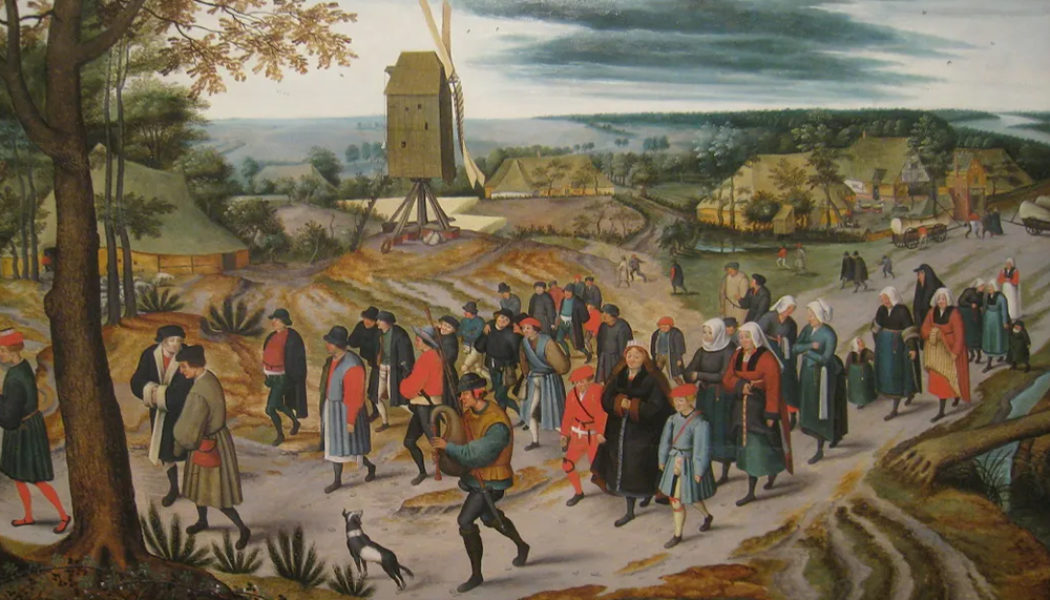
Conservatives often receive a bad rap as negative reactionaries who continually complain about the state of society and the Church. Conservation, however, flows from our original mission to till and protect the Garden, implying that God entrusted a good to us that must be preserved and cultivated within the limits of his original work. Conservatives reject the myth of progress that “new” necessarily means “better,” even if it might be on occasion, and recognize the necessity of tradition. The need to conserve implies the possession of a good worth cherishing, protecting, and passing on. Perhaps this points to the key difference between a conservative and a progressive, with one recognizing the good as already possessed and the other seeking a future good not yet possessed.
The conservative label has been applied infelicitously within the Catholic Church. Rather than the political left/right divide that arose in the French Revolution between Republicans and Monarchists, it has come to represent alternative ways of interpreting the Second Vatican Council. Conservatives seek to preserve traditional expressions of doctrine and liturgy, while liberals seek greater accommodation to the culture. Pigeonholed into this dichotomy, we can miss the deeper meaning of conservatism. I would propose a more complete vision of Catholic conservatism, beginning with a deeper definition of what it means to be a conservative in general.
Russell Kirk provides a helpful starting point, laying out six general principles in his essay “Conservatism: A Succinct Definition.” He begins, “First, conservatives generally believe that there exists a transcendent moral order, to which we ought to try to conform the ways of society.” This means that we do not set our own terms but accept a standard above ourselves. “Second, conservatives uphold the principle of social continuity.” They perceive social change as disruptive. “Third, conservatives believe in what may be called the principle of prescription.” This entails preserving acquired wisdom and the customs of our ancestors. “Fourth, conservatives are guided by their principle of prudence.” They seek to exercise caution and deliberation in making decisions. “Fifth, conservatives pay attention to the principle of variety.” They reject the tyranny of imposing one absolute or centralized standard, recognizing the value of individual contributions within distinct traditions. “Sixth, conservatives are chastened by their principle of imperfectability.” They strive for realism due to their attention to human failure.
To these six principles proposed by Kirk, I would add two more of my own. Seventh, conservatives seek to preserve timeless goods by cherishing beauty in the arts and architecture and preserving liberal education. Eighth, they uphold the principle of subsidiarity by remaining rooted in the foundation of the family, the importance of self-sufficiency, and the priority of local community, economics, politics and culture.
Drawing upon these principles, I would propose the following applications for an articulation of a more robust Catholic conservatism:
1. Conservative Catholics preserve the priority of God’s revelation and its expression by the Church in her doctrine.
2. Conservative Catholics uphold the unbroken nature of tradition and seek to hand it on to the next generation.
– Advertisement –
3. Conservative Catholics exercise caution in the face of proposed changes in the Church and society.
4. Conservative Catholics value the beautiful diversity within the Church of various cultures, intellectual traditions and liturgical rites.
5. Conservative Catholics pay attention to how sin corrupts us within the Church and work for continual spiritual and moral renewal.
6. Conservative Catholics promote beautiful art, architecture and music in the Church and seek to restore the Church’s tradition of teaching the liberal arts.
7. Conservative Catholics uphold the primary rights and duties of parents and seek to form strong communities in the parish, confraternities and other Catholic organizations to live out the faith in daily life.
To balance these principles, we also must attend to the vices of conservatives:
• Emphasizing self-reliance too heavily and not attending sufficiently to the needs of others.
• Demonstrating an excessively reactionary mindset.
• Resisting good and necessary change.
• Falling into idealism.
• Giving into a power struggle for control within a paradigm set up by progressives.
• Succumbing to cynicism or even despair in the face of what appears to be unstoppable change.
To overcome the vices of conservatives, we could also add the following principles to push them beyond narrow confines:
8. Conservative Catholics should work harder to uphold the dignity of all human beings, especially the most marginalized and vulnerable in society.
9. Conservative Catholics should grow in hope by trusting in God’s providential care for the Church and human history.
10. Conservative Catholics should give others, including Church leaders and those with whom they disagree, more understanding, support and prayer.
Conservative Catholics work to preserve and uphold genuine and necessary goods within the life of the Church and society. They can break out of the confines of a conservative label, and the vices that follow it, by demonstrating greater charity and manifesting hope for others.









